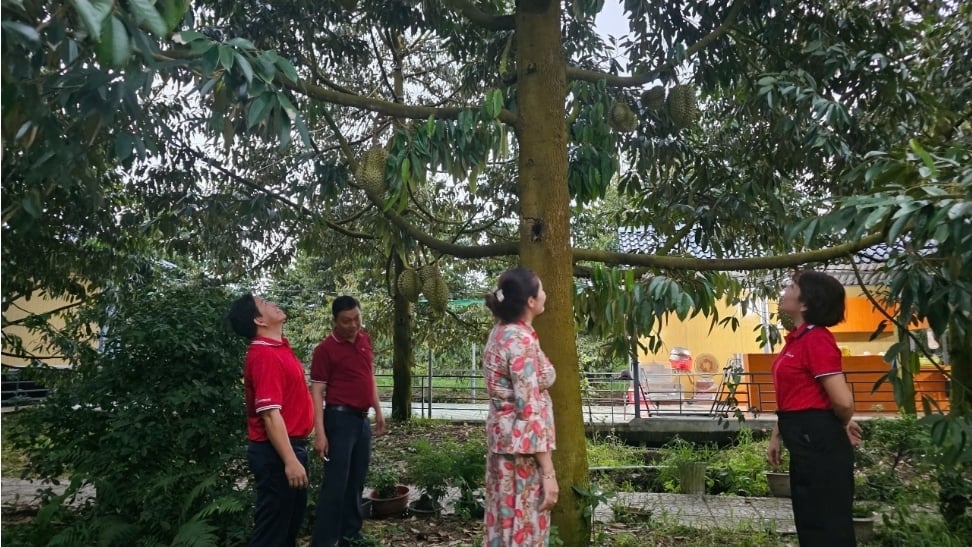
Women starting businesses in agriculture in the Mekong Delta not only contribute to economic development but also play an important role in environmental adaptation and protection.
Vietnam News Agency reporters have produced a series of four articles with strong and inspiring messages about the role of women in responding to climate change in the Mekong Delta.
Lesson 1: Identifying the challenges
The Mekong Delta is a fertile land, known as the country's largest rice and seafood granary, making an important contribution to national food security and agricultural exports. However, in recent years, the Mekong Delta has been facing major challenges, with widespread impacts, especially the impact of climate change on unsustainable socio-economic development. Women are identified as vulnerable, which invisibly makes their entrepreneurial journey even more difficult.
From expert opinion…
Vietnam is one of the countries most severely affected by climate change. In recent years, natural disasters have not only increased in frequency but also in intensity. In the Mekong Delta region in particular, this situation has become more common as sea levels rise, saltwater intrusion deepens inland, droughts, riverbank and coastal erosion become more complex and unpredictable, threatening the livelihoods of millions of people.
Meanwhile, women are always classified as vulnerable to the impacts of climate change, especially in areas sensitive to natural disasters, abnormal weather, rural and mountainous areas, where production conditions and living standards are still difficult. For women starting businesses in the Mekong Delta, these challenges are even more severe.
According to Associate Professor, Dr. Le Anh Tuan (senior lecturer at Can Tho University), the Mekong Delta is characterized by agricultural production, so when affected by climate change, the production process and raw material sources are unstable and have high risks. Meanwhile, 99% of women here start their businesses from agriculture. Therefore, the typical difficulty of women starting businesses in these localities is the impact of climate change, which makes it difficult for them to access land and production materials are affected...
Ms. Nguyen Thi Thuong Linh, Deputy Director of the Vietnam Federation of Commerce and Industry, Mekong Delta Branch (VCCI Mekong Delta) said that small and micro scale is the most common difficulty and challenge for start-up businesses in the Mekong Delta (more than 98% of start-up businesses owned by women are micro and small).
According to experts from VCCI Mekong Delta, the reason is that women are limited in resources, management knowledge, market access, lack of opportunities to participate in trade promotion support programs, and lack of networking...
In particular, small businesses are limited in capital size, making it difficult to invest in expansion and large-scale development. In addition, start-up models do not focus on finance, products are not sustainable, do not meet international consumption standards, financial indicators are not guaranteed, and are unclear, leading to investors being unable to invest in the model.
Notably, women-owned businesses also face difficulties due to gender characteristics. Women are always burdened with the double burden of business and family care. This leaves women with little time to learn about business, expand their business, establish networks, etc.
According to the female expert of VCCI Mekong Delta, few people see the difficulty of women doing business as the "glass ceiling". That is, when others look at women doing business, they see that they are good and successful (transparent), but women themselves always think that taking care of family, children... is their responsibility, so when they develop their business, they will "hit the ceiling" (worrying about their responsibilities to family, children...).
“While the business and social environment is constantly changing, requiring updating and upgrading knowledge and skills, because of the “glass ceiling”, women will actively ignore opportunities to develop their business, study and develop themselves. If women are not trained and their knowledge is not upgraded daily, their ability to absorb knowledge will be low, affecting their business,” Ms. Thuong Linh analyzed.
As someone who has been involved in and witnessed women starting businesses for many years, Ms. Nguyen Thi Ngoc Thuy, Vice President of the Women's Union of Ca Mau province, acknowledged that in recent years, the start-up movement has developed strongly, but women in rural areas still face many difficulties. Production scale is still small, there is a lack of access to technology, digital transformation, and product diversity. In particular, investment capital for development as well as the lack of infrastructure and stable consumption channels are major problems for small businesses and women's business households.
Besides, the strong transformation of 4.0 technology, natural disasters, epidemics, and climate change create many difficulties for women starting businesses in the agricultural sector - where the application of traditional business methods is still very popular.
…To the reality of the people involved
Women in the Mekong Delta start businesses, in addition to facing the impact of nature, their journey encounters many obstacles.
For those starting a business in agriculture, quality raw materials are the key to the success of a product. In order for the product to retain customers, traditional methods that lack sustainability will have to give way to innovation. However, to change that “way of thinking” is not simple.
Looking back over 8 years of starting a business from a native tree species - palmyra palm of Tri Ton land (An Giang province), Ms. Chau Ngoc Dieu, General Director of Palmania Joint Stock Company shared that to have palmyra palm products under the Palmania brand present in many demanding markets (Netherlands, Sweden...) like today is not an easy journey and has encountered many difficulties.
According to Ms. Diu, in order to produce palm molasses products that meet the market's requirements of "green and clean" (no chemicals or additives are used in any stage to ensure natural flavor and absolute safety for the health of users), it is very difficult to convince people to give up unsafe production methods, especially for Khmer people who have long been accustomed to the familiar production methods.
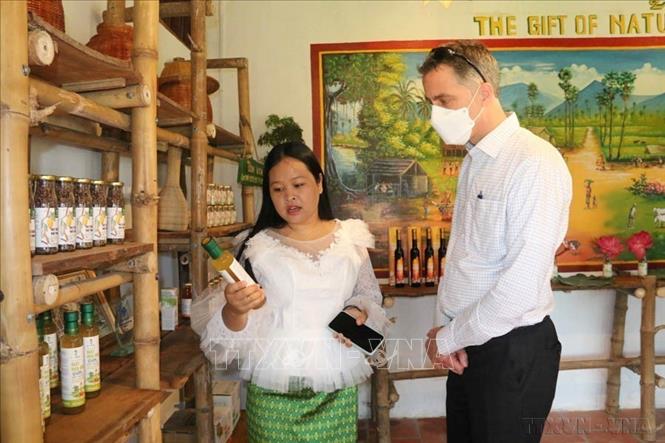
Meanwhile, "leaving the city" to return to the countryside to start a business from their hometown's product - coconut trees, the couple Thach Thi Chal Thi, Tra Vinh Farm Limited Liability Company (Sokfarm), Vinh Long province also faced many challenges.
Ms. Chal Thi confided that when she and her husband decided to return to their hometown to collect coconut nectar to process the product, they encountered many opposing opinions from farmers, because up to now, they only grew coconuts for the fruit, not for the nectar.
“Not to mention, one of the biggest difficulties is that coconut nectar products are still unfamiliar to consumers. Customers do not know what coconut nectar is. Some people even say that they choose honey for ease of use,” Ms. Chal Thi shared.
Most women in the Mekong Delta do not start a business to improve their livelihoods because of difficulties, but they seize the opportunity to start a business with the desire and aspiration to become business households and enterprises. They themselves have to "struggle" to overcome themselves to go on this difficult journey.
After a journey of many years starting a business from local agricultural products, Ms. Doan Thi Hong Tham (Hygie & Panacee Limited Liability Company, Can Tho City) concluded: “Overcoming oneself and not being discouraged is a big difficulty for many women starting a business. Because, before, when they were still working, they had a relatively good salary and income, and a stable family life. But when deciding to embark on the path of starting a business, women face risks and uncertainties”./. (To be continued)
Lesson 2: Opportunities from challenges
Source: https://baotintuc.vn/kinh-te/phu-nu-dong-bang-song-cuu-long-khoi-nghiep-thich-ung-bien-doi-khi-haus-bai-1-nhan-den-cac-thach-thuc-20251008085029909.htm




![[Photo] Closing of the 13th Conference of the 13th Party Central Committee](https://vphoto.vietnam.vn/thumb/1200x675/vietnam/resource/IMAGE/2025/10/08/1759893763535_ndo_br_a3-bnd-2504-jpg.webp)



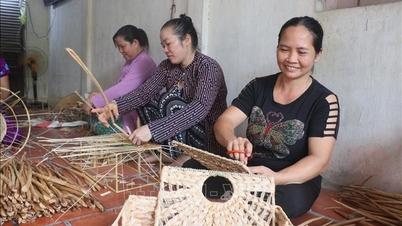
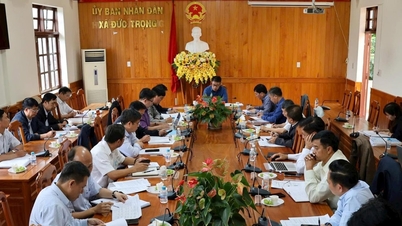






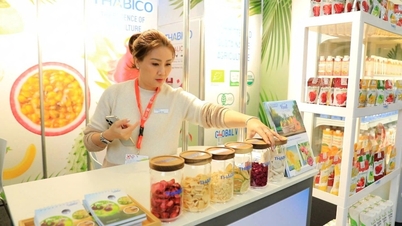



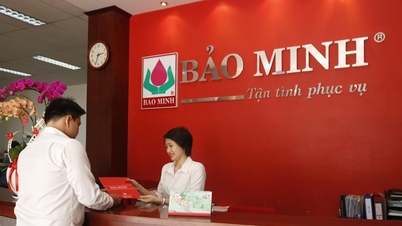



































































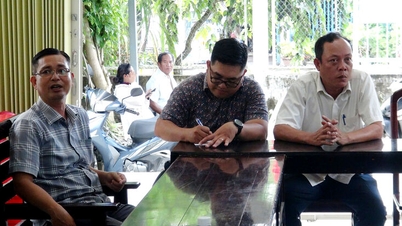














Comment (0)